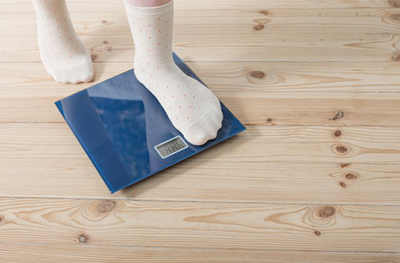
4. Early weight-loss surgery may improve type 2 diabetes, blood pressure outcomes |

![]() Despite similar weight loss, teens who had gastric bypass surgery were significantly more likely to have remission of both type 2 diabetes and high blood pressure, compared to adults who had the same procedure. Results, which are from an NIH-funded study comparing outcomes in the two groups five years after surgery were published in The New England Journal of Medicine.
Researchers evaluated 161 teens and 396 adults who underwent this surgery at clinical centers participating in Teen-LABS (Teen-Longitudinal Assessment of Bariatric Surgery) and its adult counterpart, LABS. Teens in the study were under 19 years old at the time of surgery, and adults in the study reported having obesity by age 18. Teen-LABS clinical centers had specialized experience in the surgical evaluation and management of young people with severe obesity, and both studies were funded primarily by NIH's National Institute of Diabetes and Digestive and Kidney Diseases (NIDDK).
Despite similar weight loss, teens who had gastric bypass surgery were significantly more likely to have remission of both type 2 diabetes and high blood pressure, compared to adults who had the same procedure. Results, which are from an NIH-funded study comparing outcomes in the two groups five years after surgery were published in The New England Journal of Medicine.
Researchers evaluated 161 teens and 396 adults who underwent this surgery at clinical centers participating in Teen-LABS (Teen-Longitudinal Assessment of Bariatric Surgery) and its adult counterpart, LABS. Teens in the study were under 19 years old at the time of surgery, and adults in the study reported having obesity by age 18. Teen-LABS clinical centers had specialized experience in the surgical evaluation and management of young people with severe obesity, and both studies were funded primarily by NIH's National Institute of Diabetes and Digestive and Kidney Diseases (NIDDK).
- Overall weight loss percentage was not different between the groups. Teens lost 26% of their bodyweight and adults lost 29% at five years after surgery.
- Type 2 diabetes declined in both groups, but teens with type 2 diabetes before surgery were 27% more likely than adults to have controlled blood glucose without the use of diabetes medications.
- No teens in the group needed diabetes medications after surgery, compared to 88% of teens before surgery. 79% of adults used diabetes medications before surgery, and 26% used diabetes medications five years later.
- Before surgery, 57% of teens and 68% of adults used blood pressure medications. Five years after surgery, 11% of teens and 33% of adults used blood pressure medications.
- Among those with high blood pressure before surgery, teens were 51% more likely than adults to no longer have high blood pressure or take blood pressure medication.
![]() However, teens were more likely to have increased risks in other areas, including a need for subsequent abdominal surgeries, most commonly gall bladder removal. Teens were also more likely to have low iron and vitamin D levels, potentially because teens may be less likely to take enough vitamin and mineral supplements after surgery.
However, teens were more likely to have increased risks in other areas, including a need for subsequent abdominal surgeries, most commonly gall bladder removal. Teens were also more likely to have low iron and vitamin D levels, potentially because teens may be less likely to take enough vitamin and mineral supplements after surgery.
![]() This study demonstrates that bariatric surgery may provide an effective treatment, though not one without risks," said NIDDK Director Dr. Griffin P. Rodgers
This study demonstrates that bariatric surgery may provide an effective treatment, though not one without risks," said NIDDK Director Dr. Griffin P. Rodgers
For enquiries info@jothydev.net.
Please visit: jothydev.net | research.jothydev.com | diabscreenkerala.net | jothydev.com/newsletter
